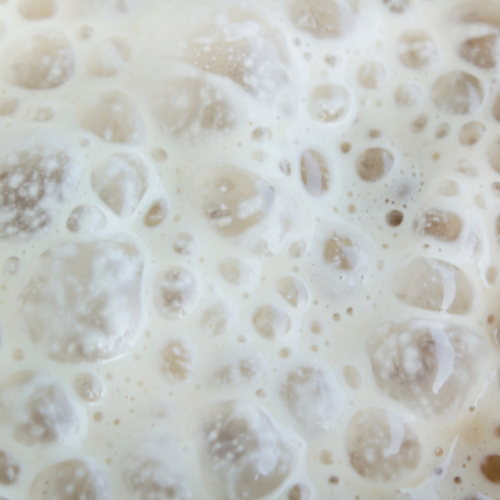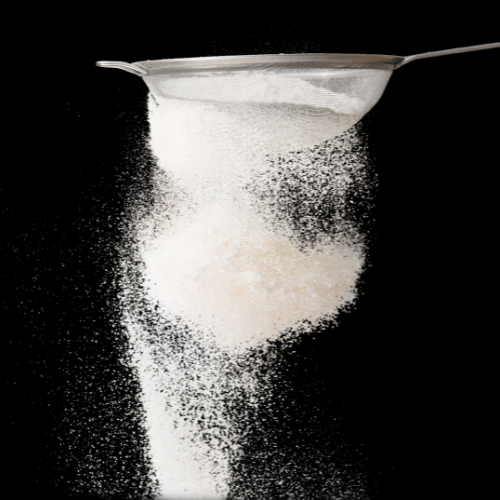Of microbes and men: the link between gut bacteria, nutrition and health

In almost every podcast episode covering nutritional science or health research, the gut microbiome emerges as an important factor. Be it fertility, obesity, heart disease, personalised nutrition or irritable bowel syndrome, gut bacteria is involved.
In this feature, we’re going to explore what the microbiome is, how it impacts health and what you can do to support beneficial bacteria in the gut.
Curated from our archives, we’ve also selected three podcast episodes exploring the link between gut bacteria, immunity, and sports performance. Let’s jump in:
What is the gut microbiome?
The microbiome refers to the community of bacteria, fungi and other microbes living in the human gut. Far from hitching a free ride, these microbial residents play a key role in our intestinal, metabolic, immune, and potentially even mental health.
Their collective genes outnumber our human genome 100 to 1, meaning you’re technically more microbe than man when it comes to DNA. In return for space and nutrients, the microbiome performs numerous beneficial functions, including:
- Breaks down indigestible fibres and makes their nutrients bioavailable
- Synthesises key vitamins and minerals
- Produces anti-inflammatory short chain fatty acids such as butyrate
- Nourishes the intestinal lining and reduces intestinal inflammation
- Produces up to 95% of total-body serotonin, AKA the happy hormone
- Primes and regulates immune cells, 70% of which reside in the human gut
What does a healthy gut microbiome look like?
Numbering around 100 trillion and boasting 5000 different species on average, your gut microbiome is an ecosystem as rich as a rainforest.
Whilst we still have more to learn, balance and diversity are two key markers of gut microbiome health; the more microbes you have, and the more evenly distributed they are, the less chance there is that harmful microbes will take over.
Tellingly, a dysbiotic microbiome (lacking diversity and balance) is linked to a higher risk for health conditions such as obesity, type-2 diabetes and heart disease, among others.
How does nutrition impact our gut bacteria?
Studies have shown that our lifestyle and dietary choices can shift the composition of our microbiome and influence health outcomes.
A diet defined by a diverse array of plant-based fibre has been shown to increase microbiome diversity and boost beneficial bacteria. Many diets associated with reduced disease risk also enrich microbiome diversity, suggesting our gut bacteria could mediate these benefits.
Plant-based fibres feed beneficial bacteria in the gut, acting like fertiliser for our microbiome. Researchers refer to these foods as prebiotics, not to be confused with probiotics – live organisms that can confer health benefits when ingested.
Probiotics can be sourced from both supplements and fermented goods like kimchi and kefir. Whilst the research is nascent, they show potential in the treatment of antibiotic-related diarrhoea and other gastrointestinal issues.
Whilst food shapes our gut composition, the trillions of bacteria in our gut influence how we respond to food as well. Animal studies suggest that our gut bacteria can determine blood sugar responses and weight management, for instance. In light of the findings, the gut microbiome looks set to revolutionise nutritional science.
IMPORTANT: Immunocompromised individuals should avoid consuming fermented foods such as kimchi, kefir and sauerkraut.
Podcast spotlight
The following podcasts explore the important link between our gut microbiome, diet, performance, and overall health. Together, they’ll explain how the gut microbiome cares for you and what you can do to look after them.
Podcast 1: the role of the gut microbiome in immune health
Around 70% of immune cells are located in the gut wall, constantly interfacing with the bacteria in our large intestine. In early life, our newly acquired gut bacteria help to train the developing immune system to distinguish between threats and harmless compounds – with life-long effects.
Children born via c-section or those who are bottle fed generally have less diverse microbiomes than babies delivered through the bacterial rich vaginal canal. Tellingly, they experience higher rates of allergies and auto-immunity in later life; the reason being that fewer bacteria translate to a poorer immune education.
The gut microbiome continues to influence immune health throughout our life as well, either soothing or triggering immune cells depending on its composition.
In this thought-provoking episode, we are joined by Dr Caroline Childs, Lecturer in Nutritional Sciences, Dr Gemma Walton, a Lecturer in Metagenomics and Dr Lucien Harthoorn, R&D Director at Clasado Biosciencesas.
Together, these leading experts outline the role of the gut microbiome in immune health, from training an infants immune system to maintaining immune homeostasis in later life. They also offer dietary tips to support immune health via the gut microbiome. You don’t want to miss it!
Podcast 2: How the microbiome impacts our health

Studies show that the gut microbiome impacts multiple aspects of human health, from blood glucose response and weight gain to digestive function and inflammation.
As we now know, the gut microbiome can even communicate with our brain via the vagus nerve – a connection dubbed the gut-brain axis.
In this riveting podcast, we’re joined by Julie Thompson from Guts UK, Mariëtte Abrahams, CEO of Qina, and Allison Clark, a registered nutritionist, to explore the numerous ways that gut bacteria influence our overall health.
Drawing on their diverse and extensive expertise, they discuss what constitutes a “healthy” microbiome, survey the current research on probiotics, and list the best foods to help cultivate diversity and balance in the gut microbiome.
Podcast 3: What role can probiotics play in sport performance?

Elite athletes boast higher microbiome diversity than the average population and greater numbers of health-boosting species.
Likewise, high-level runners have been found to possess high numbers of bacteria that convert muscle-burning lactate into propionate, increasing their endurance.
Such observations raise a provocative question: could we improve our athletic performance via changes in the gut microbiome? And if so, which foods or supplements could help?
Made in partnership with Lonza, the following podcast explores the role of the gut microbiome in sports performance and spotlights their latest probiotic supplement, TWK10®.



















